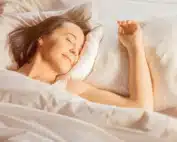Brain Aging: Women are Different. Suffice it to say that men and women are different. Aside from the fact that women have 2 X chromosomes and men have and X and Y, and women have high levels of estrogens and men have high levels of testosterone, these differences affect a lot of things.
 Brain Aging
Brain Aging
Lisa Mosconi, director of the Women’s Brain Initiative at Weill Cornell Medical Center stated that women and men’s brains age differently.
Men and women react differently to the same diseases is most likely due to sex hormone effects on the brain. Testosterone and estrogen play a critical role in brain health. Although, can affect the risk of neurodegenerative diseases such as dementia.
- During menopause brain energy levels decline by 20% or more. Yet men of the same age do not show any evidence of the same decline.
- Two thirds of all persons with late-onset Alzheimer’s disease (AD) are women.
- Amyloid plaque, accumulation, a hallmark of Alzheimer’s disease begins as women transition through menopause.
- Memory centers in the brain also begin to shrink as estrogen levels decline.
These changes occur slowly beneath the surface and it takes many years for cognitive decline to show up.
Mood and Immune Function
Women are twice as likely to experience major depression. Moreover, three times more likely to be diagnosed with neurodegenerative autoimmune disorders. Women become even more susceptible to these disorder during the transition into menopause.
Immune disorders become activated at and around the transition into menopause, especially in the case of predisposed patients.
- Multiple sclerosis is an autoimmune disorder. Women with longer reproductive periods and those with higher numbers of pregnancies were better protected against multiple sclerosis.
- The 2020 study in Brain Communications showed that the more pregnancies a woman had, the less her disease progressed, suggesting that the flood of estrogen during pregnancy increased protection.
- Premature/early menopause or no pregnancies was associated with earlier onset of progressive multiple sclerosis.
The studies suggest that estrogen has a beneficial impact on delaying progressive multiple sclerosis and severe disability. There may be a ‘dose effect’ of pregnancies- the more pregnancies, the better and the fewer pregnancies the worse the effect on disease development and progression.
Timing Not Amount Makes a Difference
The amount of estrogen supplied to the brain may not be as significant as the time at which the hormone levels undergo changes.
- In a 2005 review of the Women’s Health initiative study where women were started on hormones on average 10 years past menopause, they found that giving hormones to a women age 65 years and older, does not protect against dementia or cognitive decline, but substantially increases the risk of dementia of any cause and cognitive decline.
- However, multiple clinical trials have shown that hormone replacement therapy is effective at preserving brain metabolism if started early.
- Women on hormone therapy for 10 years preserved frontal and parietal cortical metabolism, compared with women who discontinued hormone therapy.
- Other studies showed that women on hormone replacement therapy had better cerebral blood flow.
- Across a battery of standardized neuropsychological tests of memory. The women on hormone replacement therapy obtained higher scores than did nonusers of comparable intellect.
Beginning hormones in early menopause can have a positive impact and delay the development of arteriosclerosis. Furthermore, hardening of the arteries that can affect blood flow to the brain that provides energy and nutrients.
While not all women are candidates for hormone replacement therapy, those at risk for or experiencing depression, anxiety, multiple sclerosis or early cognitive decline may want to consult with a physician who is experienced in bioidentical hormone replacement therapy. The right dose and timing may help you to preserve your memory, mood and overall health. Learn more about how functional medicine can help you achieve your best health and schedule a free clarity call to determine if you are a good fit.





She is a recognized and award-winning holistic, functional, integrative and anti-aging healthcare practitioner, speaker and author, and has been featured in ABC News, Forbes, WOR Radio and many media outlets to spread the word that you can live younger and healthier at any age.